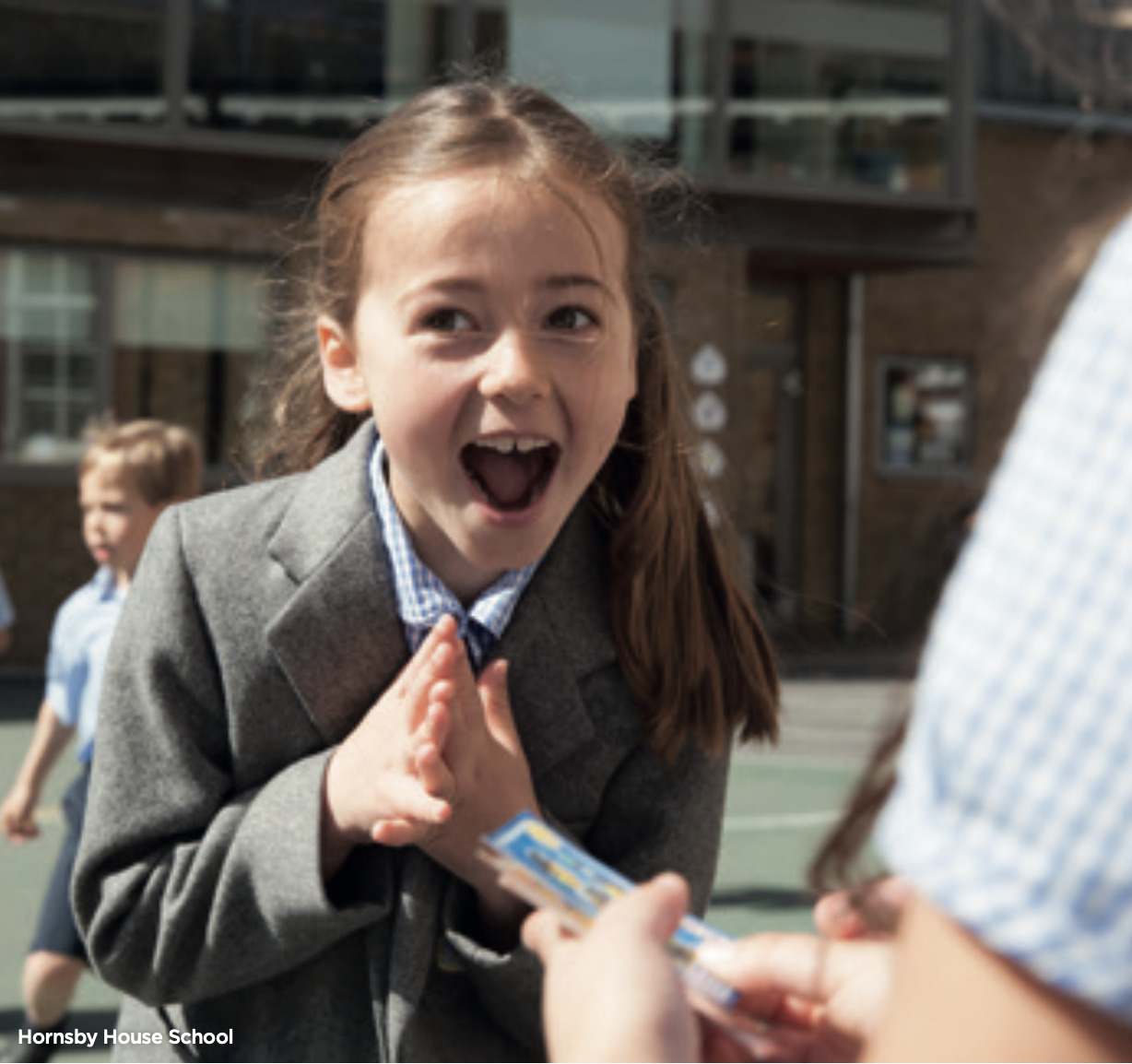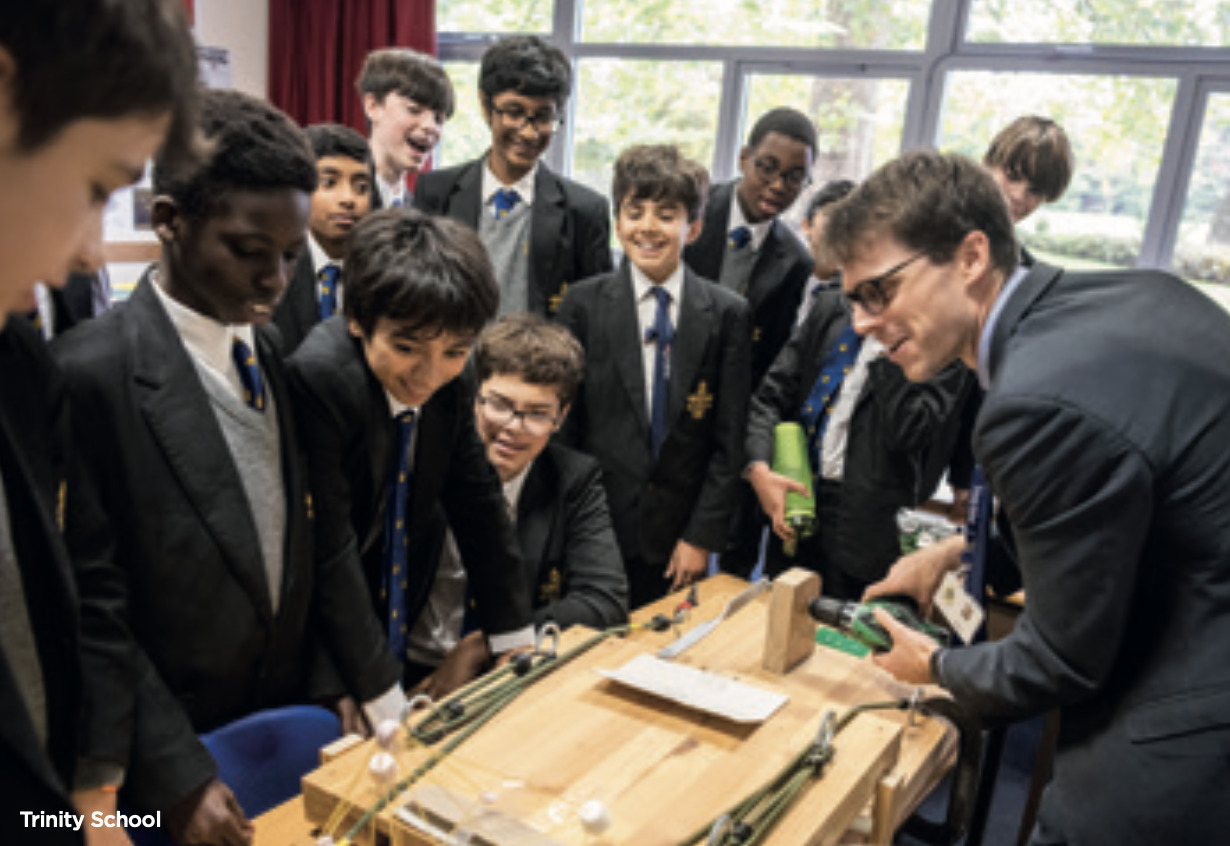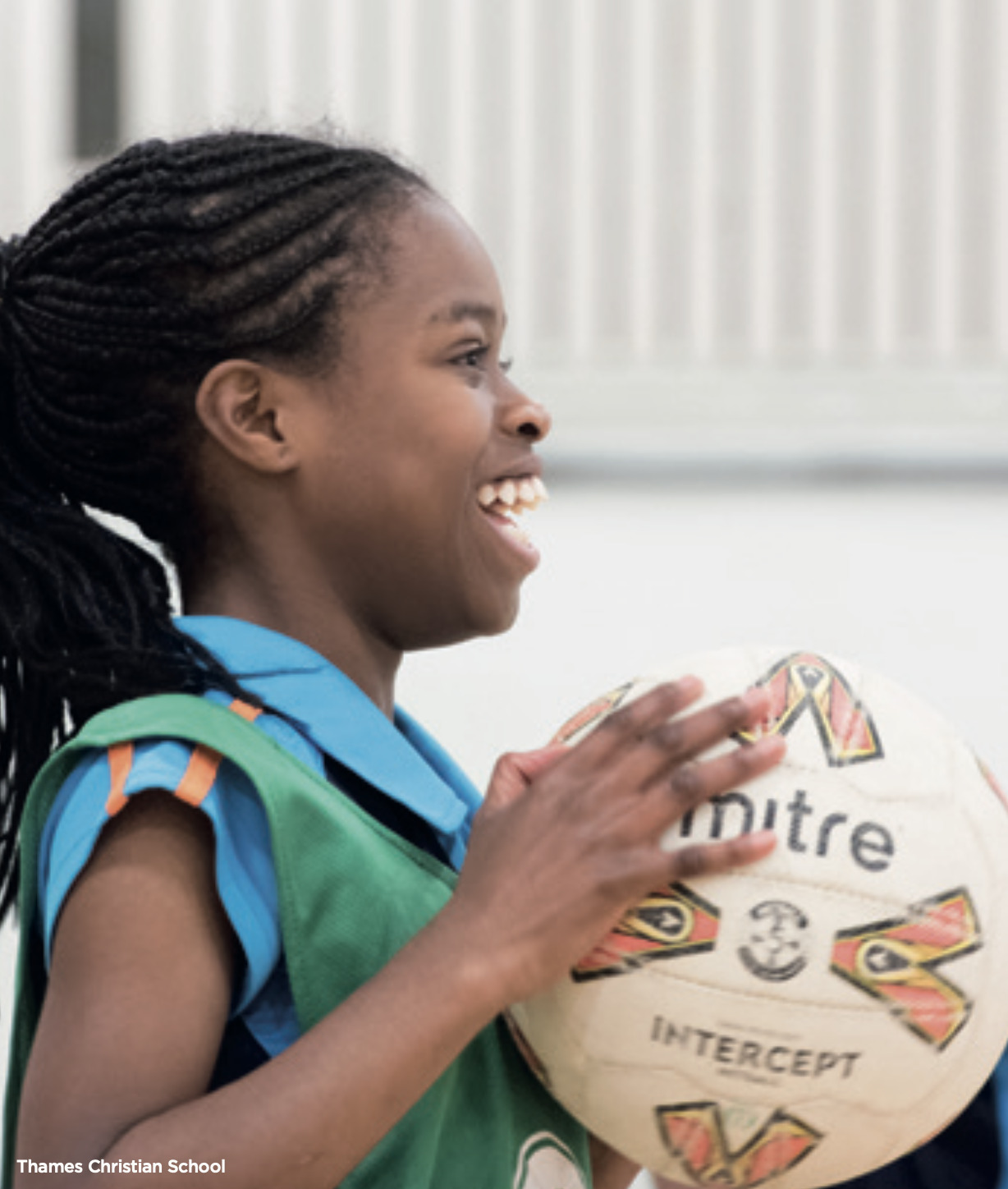Menu
As schools start a new academic year in September 2021, they will be different, but how different? After the largest disruptions to schooling in living memory, it is inconceivable that they will return looking as they did before the outbreak of Covid. School uniform – and in particular the school skirt – is just of one many items on the agenda for change as teachers ‘build back better’.
At Putney High School, school skirts are a hot subject for debate and the school is looking at its sixth form uniform policy after a year when lessons moved online and pupils wore comfy athleisurewear while studying at home. Now, as schools open up again, Suzie Longstaff, Headmistress of Putney High, says there is a feeling among many teenage girls that school skirts and tights are old-fashioned and uncomfortable. “School uniform is a new battleground,” says Longstaff, who herself wears trousers to work.
“Students would like schools to look at uniform policies because they think they are outdated. There was a report earlier this year about a school where girls had to kneel on the ground to have their skirt lengths measured; that is the wrong thing to do for this generation. Is a school uniform about comfort, is it about protecting you from other people? It used to be that girls wore skirts for school and boys wore trousers. Now in a growing number of schools girls can wear trousers too. Schools are really having to focus on how their uniforms might need to change [as they return after the pandemic].”

THE IMPORTANCE OF GIVING BACK
The responsibility to educate future generations extends to ensuring that our pupils are in tune with their wider social responsibilities, developing a social conscience beyond their school years.Communities are built on respect and that is at the heart of all we do. We recognise the common purpose that we have towards ensuring that the community to which we belong embraces its social responsibility. One of our key aims is to ensure our pupils have a strong moral compass and are accepting and respectful of themselves and others. This past year has left many of us feeling as though our life was not in our own hands, but we all have the power to make contributions, in productive and conscientious ways, that can benefit us as a global community: tackling racial injustice, protesting against gender inequality, campaigning for period poverty, fundraising to fix the digital divide or simply writing a letter to a local care home resident. Every and any action that is for something positive matters and is important, no matter how big or small.
Source: Sydenham High School GDST
Perhaps the biggest shift will be a likely revolution in the use of online teaching in 2021/22. Few schools are planning a full- time return to classroom teaching. Instead many are planning to use what they have learned in the past year, when teachers filmed their lessons and streamed them in real time and classroom assemblies were held on Microsoft Teams or Zoom.
Academy trusts such as Ark have bought laptops for all their pupils from age seven upwards and some experts are now arguing that the policy should be nationwide, with all schoolchildren given a laptop as a basic item of school equipment, as essential as a textbook. Certainly, the digital divide loomed large in the crisis, with many schools having to fundraise to get computers and broadband to children so that they could carry on learning from home. There was a row too over the pace at which government managed to roll out more than a million devices to families in need.
Some schools are planning to continue to use online lessons to teach children who are sick or may want a few days at home because of bullying or other school stresses Online lessons can be wheeled out for revision sessions too. A few schools are even planning to launch entire online qualification courses or even virtual schools: EtonX and HarrowOnline are two of the most famous brands offering teaching for some GCSEs and A-levels entirely online.
Meanwhile reports that the annual ritual of rushing out of work to get to speak to your child’s teacher for ten minutes has had its day will be welcomed by parents and teachers alike. Parents’ evenings were held online in the pandemic and many headteachers want them to stay that way. As Sir Kevan Collins, the government’s former education recovery tsar, put it, online parents’ evenings are “much better than trying to find a parking space on a wet Tuesday and waiting your turn”.
Ali Bucknall, Marketing and Communications Director of Northwood Schools, says “Covid forced many teachers and staff to make a massive leap forward in their technological skill-set – that’s a good thing. The creativity and inventiveness of staff was extraordinary.”
The four schools already had online systems, but still saw striking results from being forced to engage with parents online: “We saw parental engagement rocket – with regular updates, videos and photographs sent in by parents.” Northwood Schools also ran virtual tours and online open days as well as online parents’ evenings.

BUILDING TOMORROW’S CITIZENS TODAY
As we seek to best prepare pupils for an ever-changing and fast-paced new world, it seems crucial that, even at a young age, children develop transferable soft skills essential to 21st century life.All our Years 7 & 8 now follow a cross- curricular humanities programme,
the Newton Diploma, which seeks to develop those 7 Cs: critical thinking, creativity and innovation, collaboration, cross-cultural understanding, communication, computing technology and career learning. Through local community and charity work, our pupils develop their ability to collaborate, to think critically and to be creative.They begin to understand the responsibility of leading a team and become increasingly resilient, tolerant and respectful global citizens. The Diploma encourages our pupils to leave at the end of Year 8 as happy, confident, well-rounded individuals ready to face the challenges thrown at them by this unpredictable world.
Source: Newton Prep
Longstaff agrees about how 2020/21 was the year technology came into its own in many UK schools, with private schools on the whole out-performing the state sector in delivering real time online timetables. “There were so many discussions before Covid about the dangers of IT for kids – but this past year also has shown the power of IT.” Like several schools the fee-paying Putney High put parents’ evenings, open days and concerts online, initially as emergency provision, but now likely to be permanent.
Longstaff also argues that there is further scope for digital engagement, including ‘flipping the classroom’, which means pupils studying a topic online the day before the lesson, and then coming to class prepared to debate and argue. “Opportunities for new ways of learning are very exciting, such as the digital learning platforms, to flip the classroom, collaborate online and learn in the classroom,” says Longstaff.
The Alpha Plus Group has gone one step farther, launching a virtual school, Portland Place Online in January. As a hybrid school, children learn online four days a week and then on-site for the other day. The price is reduced compared to a normal day pupil fee so could this be a model for the future?
“Our hybrid school aims to provide a flexible alternative for families whose working patterns are changing, as well as opening up independent education for all children,” says
David Bradbury, Head at Portland Place School. “We use the most effective technologies including video conferencing and adaptive learning which help to personalise and differentiate learning through artificial intelligence (AI) technologies. “Teachers maintain regular contact with their tutees, to check in on both their academic progress and emotional wellbeing,” adds Bradbury. “Students also have access to experienced counsellors for online consultations if required. At the same time, parents can track their children’s learning through the school’s learning management system.”
Chris Ramsey, Head of Whitgift School believes new techniques developed in the last year will offer his pupils a more flexible learning experience; “We have certainly learned that you can learn remotely in the short term, so ‘snow days’, periods of absence for injury or indeed staff training can now be more productive. And I think there will be a role for more flexible sixth forms.” He also expects to see more ‘flipping’ but is sceptical about its benefits.
Grace McCahery at The White House School echoes Ramsey, “We use Google Classroom for any instances when a child is off school for a period of time, perhaps needing to self-isolate or with a broken toe. This means the child at home can still interact with a teacher and their peers where in the past, work would have just been sent home.”
Past pupils might have welcomed a few days off, but Longstaff reckons the last year has changed attitudes: “The children are all so keen to come back – the enthusiasm about school now is great.” But none of those interviewed foresees further drift towards STEM subjects, whatever the tone of government rhetoric. Instead, schools are stressing the importance of art, music, drama and sport to help children express their feelings and work together again after long periods spent at home, away from their friends. Mental health problems including anxiety and depression among youngsters have risen in the past year. Ali Bucknall again: “The skills that come from working in teams, learning how to interact with other people and to express yourself creatively are invaluable life skills which suffered during lockdown. Our mantra is that ‘the whole child is the whole point’ so if anything we have worked particularly hard to try to do more to give children the confidence that comes from taking part in sports, drama and music, which we tried to keep on the timetable even in lockdown, with for instance musicalsoirées brought to life through Zoom.”

WHY A SCHOOL’S APPROACH TO DIVERSITY AND INCLUSION MATTERS
Whitgift has a vision to be a beacon of diversity and with almost 50% of pupils on some form of bursary or scholarship, we are proud to attract boys from a range of socio-economic and cultural backgrounds.Being diverse alone is not the end of the story. Schools provide the context for a child’s first relationship with the world outside their families, enabling them to develop healthy social relationships.
Alongside academic focus, there has to be an emphasis on nurturing emotional intelligence so students work collaboratively with others. The existence of a great pastoral framework, excellent tutoring and involvement of older student mentors is critical to an inclusive culture. Schools, with parents, help a child grow into a well-rounded adult who thinks independently but is willing to empathise with views of others and challenge discriminatory attitudes.
Source: Whitgift School
Alison Fleming, Headteacher of Newton Prep, agrees: “STEM subjects are hugely important but the creativity of our music, drama and sport are, I believe, essential ingredients in the total experience of being a school child,” she says. “We pulled out all the stops over this past year, from our Year 6s singing ‘together’ on a Wizard of Oz medley, to our Year 8 pupils posting fitness videos for the rest of the school to puff along to, to our youngest pupils filming their Christmas songs. We have learnt many things through this past 18 months or so. The experience leaves me with no doubt whatsoever of the importance and value of the arts and of physical fitness.”
Nor is home schooling likely to grow. The stresses of home schooling while parents also tried to work from home was cited by families as one of the most difficult aspects of the past year, with mothers in particular in many families forced to furlough in order to cope. Ramsey argues: “I suspect the opposite may well be the case: parents have appreciated just how difficult schooling is and may have a new respect for schools who do it well!”
And while change is certainly coming, these informed voices recognise vital points of continuity. Longstaff says: “I think what the past year has shown me is the importance of school as a structure for children; the importance of school as a place that goes beyond learning and exams, where they build friendships, learn team skills. Children have so needed that in the last year.”
All that, we can hope, is what they will get this year.